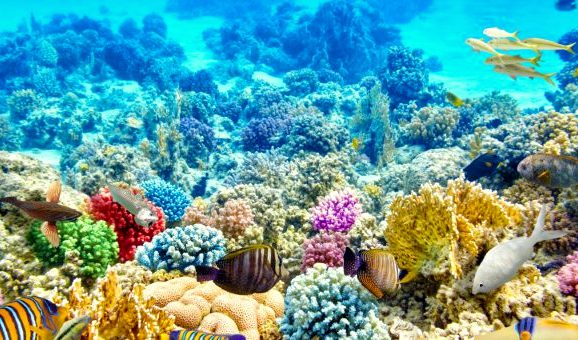Over
the past 30 years, marine scientists and researchers has made a tremendous
scientific gain in understanding how marine ecosystems work to help in
preserving the marine life. Giving us some tips to participate in this
preserving process and here are some of the researchers’ ways to help our marine
society becomes better.
1. Eat sustainable seafood.
Global
fisheries are on the verge of collapse. According to the U.N. Food and
Agriculture Organization (FAO), three quarters of the world’s fisheries are now over exploited, significantly depleted or recovering from over exploitation.
2. Reduce Energy
Consumption
Carbon dioxide from burning fossil fuels is making our oceans more acidic. One consequence could be the loss of corals on a global scale, as their calcium skeletons are weakened by the increasing acidity of the water. There are many simple ways you can reduce your energy use. Ride a bike, walk or use public transportation. Use high efficiency appliances in your home. Turn off appliances when they aren’t in use. Turn up your thermostat a few degrees in the summer and down a few degrees in the winter. Use compact fluorescent light bulbs in your house.
3. Use reusable plastic
products
Plastics that end up as ocean debris contribute to habitat destruction, degrades marine habitats and contributes to the deaths of many marine animals, entangle and kill tens of thousands of marine animals each year. Because floating plastic often resembles food to many marine birds, sea turtles and marine mammals, they can choke or starve because their digestive systems get blocked when they eat it. To limit your impact, carry a reusable water bottle, store food in no disposable containers, bring your own cloth tote or other reusable bag when shopping, and recycle whenever possible.
4. Properly dispose of
hazardous materials.
Motor oil and other hazardous materials often end up washing into
coastal areas because they aren’t disposed of properly. This pollutes the
water and hurts the overall health of our oceans. Be sure to dispose of
hazardous waste in an environmentally safe way.
5. Use less fertilizer
When fertilizers are used in gardening and agriculture, the excess eventually ends up in the ocean. One result is a “dead zone” — an area with very low levels of oxygen in the water — the size of New Jersey in the Gulf of Mexico during the spring and summer. Since all marine life requires oxygen to live, including fish and shrimp, they must flee the area or die. Many other coastal areas are at risk too. So, use fertilizer sparingly and remember more is usually not better.
6. Help Take Care of the Beach
Whether you enjoy diving, surfing, or relaxing on the beach, always clean up after yourself. Much of the plastic and debris found in the ocean has its beginnings in beach litter. As beach crowds increase, so does the amount of trash leave behind. Don’t let your day at the beach contribute to the destruction of our oceans. Bring a trash bag with you for your garbage and volunteer for beach clean-ups. Explore and appreciate the ocean without interfering with wildlife or removing rocks and coral. Go even further by encouraging others to respect the marine environment or by participating in local beach cleanups.
6. Be an Ocean-Friendly Pet Owner
Read pet food labels and consider seafood sustainability when choosing a diet for your pet. Never flush cat litter, which can contain pathogens harmful to marine life. Avoid stocking your aquarium with wild-caught saltwater fish, and never release any aquarium fish into the ocean or other bodies of water, a practice that can introduce non-native species harmful to the existing ecosystem.
7. Travel the Ocean Responsibly
Practice responsible boating, kayaking, and other recreational activities on the water. Never throw anything overboard and be aware of marine life in the waters around you. If you’re set on taking a cruise for your next vacation, do some research to find the Eco-friendliest option.
8. Influence Change in Your Community
Research the ocean policies of public officials before you vote or contact your local representatives to let them know you support marine conservation projects. Consider patronizing restaurants and grocery stores that offer only sustainable seafood and speak up about your concerns if you spot a threatened species on the menu or at the seafood counter.
9. Educate Yourself About Oceans and Marine Life
All life on Earth is connected to the ocean and its inhabitants. The more you learn about the issues facing this vital system, the more you’ll want to help ensure its health—then share that knowledge to educate and inspire others.
10. Support Organizations Working to Protect the Ocean
Many institutes and organizations are fighting to protect ocean habitats and marine wildlife. Find a national organization and consider giving financial support or volunteering for hands-on work or advocacy. If you live near the coast, join up with a local branch or group and get involved in projects close to home.












 All
All
 Politics
Politics
 Economy
Economy
 Tourism
Tourism
 Nature
Nature
 Community
Community

